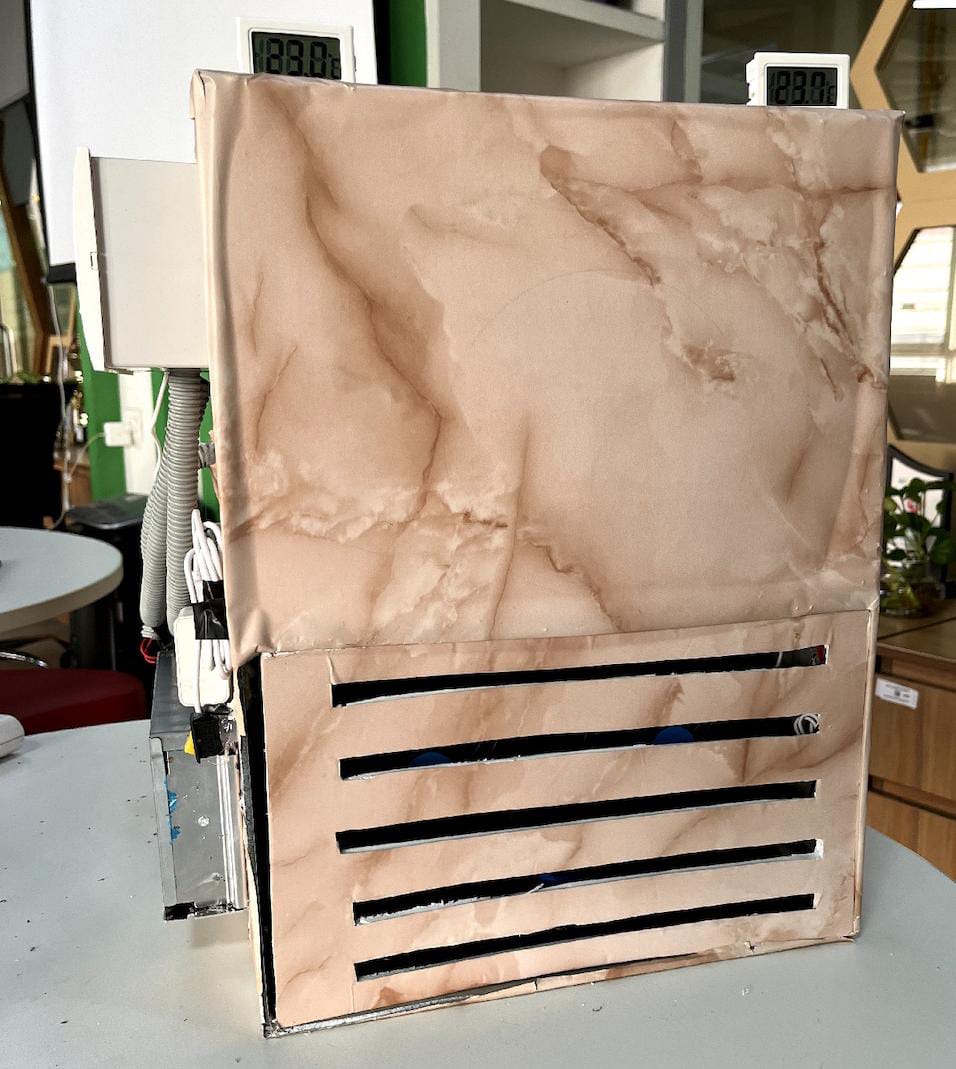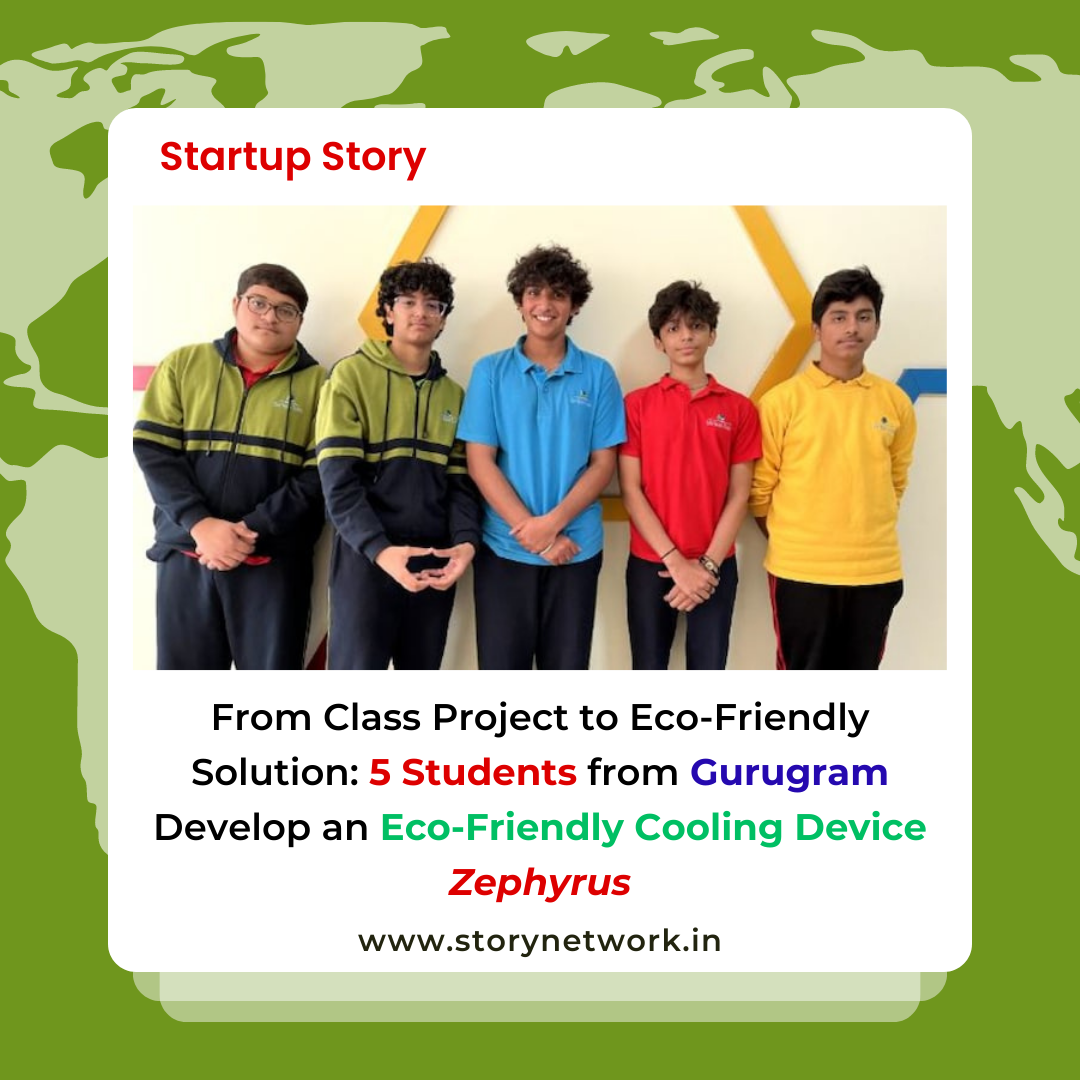A group of five students from Shiv Nadar School in Gurugram has developed an eco-friendly and cost-effective cooling device called Zephyrus. This 2-in-1 device addresses the challenges of traditional coolers while also promoting water conservation.
As part of their school curriculum in Class 10, five students Sahil Seshadri, Lakshya Goswami, Uday Singh, Sourish Grover, and Armaan Sharma identified the rising heatwaves caused by climate change as a significant issue. Their invention aims to provide portable, affordable, and efficient cooling for those who cannot afford high-end cooling systems like air conditioners.
Addressing Heatwave Challenges:
India has been grappling with severe heatwaves that adversely affect public health and economic productivity, particularly for farmers and daily wage laborers working in open spaces. Recognizing the limited access to cooling devices, with only 4.9 percent of households owning air conditioners and 14.1 percent possessing air coolers, the students sought to create a solution that would benefit those with minimal resources.
The Birth of Zephyrus:
The students observed the challenges faced by individuals using traditional coolers, such as constant water refilling, increased humidity, and inefficiency during the monsoon season. They wanted to develop a device that would address these issues and benefit users who rely on coolers. This led to the inception of Zephyrus, named after the ancient Greek god of wind, signifying its dual function as both a cooler and a heater.
Innovative Cooling Mechanism:
Zephyrus operates on the principle of the Peltier effect, utilizing four cooling modules powered by Peltier devices sandwiched between aluminum blocks. When an electric current passes through these modules, one side becomes extremely hot while the other side becomes freezing cold, creating the necessary temperature difference for effective cooling. The device is designed using aluminum sheets, exhaust and CPU fans, and measures 24×12 inches. The students received financial support from their school, and the device cost them Rs. 5,500, making it approximately 10 percent cheaper than an average cooler.

Water Conservation and Environmental Impact:
One of the significant advantages of Zephyrus is its reduced water consumption. While a typical cooler requires around 3,000 liters of water per month, Zephyrus only requires 300 ml of water. This significant reduction in water usage has the potential to save gallons of water and minimize the negative environmental impact caused by traditional cooling methods and the refrigerants used in air conditioners.
Future Plans:
Currently, Zephyrus is in the testing phase, and the students aim to refine the device to make it market-ready. Once mass production begins, they plan to further reduce the cost. The innovative cooling technology of Zephyrus has the potential to provide affordable and eco-friendly cooling solutions, benefiting individuals who face financial constraints while promoting sustainable practices.
- The ingenuity displayed by these Gurugram students in developing Zephyrus highlights the power of innovation in addressing real-world challenges. Their eco-friendly cooling device offers a cost-effective alternative to traditional coolers, while also conserving water resources. As the world grapples with climate change, inventions like Zephyrus serve as a testament to the younger generation’s commitment to sustainable solutions that improve lives and mitigate environmental impacts.
.
Do you want your story to be represented by us? Story network covers the story of inspiring entrepreneurs. You can send us your story at [email protected] and we will try to cover you.





